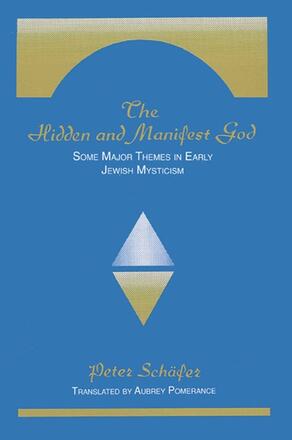
The Hidden and Manifest God
Some Major Themes in Early Jewish Mysticism
Alternative formats available from:
Description
This book represents the first wide-scale presentation and interpretation of pre-kabbalistic, Jewish mysticism. This is the Hekhalot or Merkavah mysticism. The emphasis is on the conceptions of God, the angels, and man that the texts provide and that are the framework of the Judaic world view in late antiquity and the early Middle Ages.
This interpretation is based on the major works of this early Jewish mysticism: Hekhalot Rabbati ("The Greater Palaces"), Hekhalot Zutarti ("The Lesser Palaces"), Ma'aseh Merkavah ("The Working of the Chariot"), Merkavah Rabbah ("The Great Chariot)" and the Third (Hebrew) Book of Enoch. Many quotations from this largely unknown body of esoteric literature are included.
The experience of the mystical heroes of this literature moves between the two poles of the heavenly journey—between the ascent of the mystic through the seven palaces to the Throne of Glory and the adjuration, the attempt to invoke God and his angels in order to force them to fulfill man's will. Both are permeated by magic, and the world view of this first stage of Jewish mysticism is thus deeply magical. The circles which formed it were concerned with nothing less than a radical transformation of the world of normative Judaism that for centuries was determined by the Rabbis.
Peter Schäfer is Professor of Judaic Studies at Freie Universität Berlin, Institut für Judaistik.
Reviews
"What I like best about this book is that it describes the theology and anthropology of the Hekhalot literature in a way that flows naturally from the literature itself. The author avoids imposing external agendas on the material. Further, he distinguishes among different layers of material and allows each layer, as well as the ensemble, to speak for itself. His knowledge of the material is vast, his scholarship impeccable. " — David J. Halperin
"The author has dealt in a clear and systematic way with the major themes pertaining to the corpus of early Jewish mysticism. His textual method opens up many new avenues of research and enables us to rid ourselves of some past biases in the study of Jewish mysticism. " — Elliot R. Wolfson